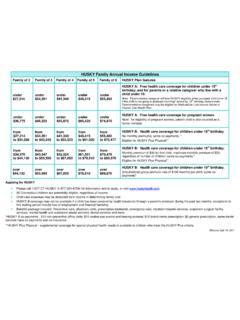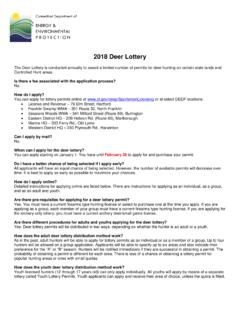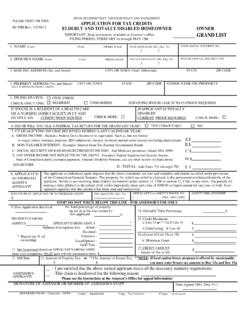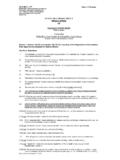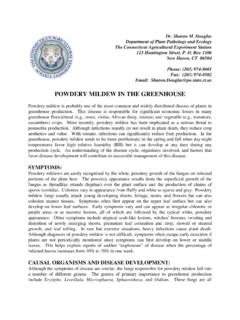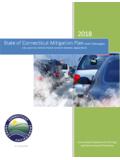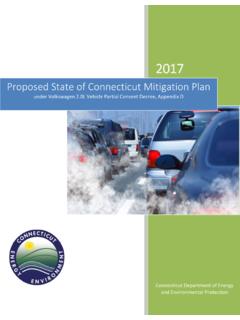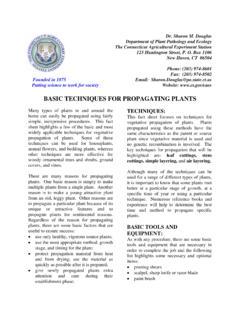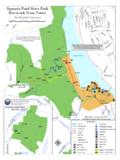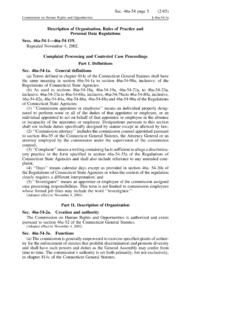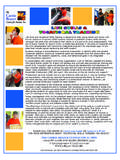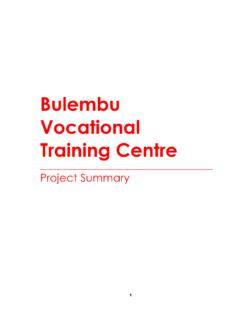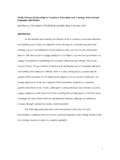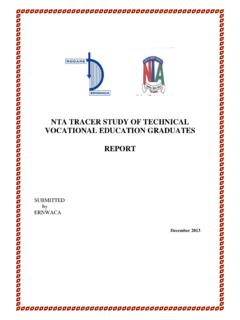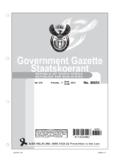Transcription of CAREER EXPLORATION/VOCATIONAL ASSESSMENT
1 CAREER EXPLORATION/VOCATIONAL ASSESSMENT . vocational ASSESSMENT is an ongoing process of gathering information that: identifies a student's strengths, interests and preferences;. identifies what training/support is required by the student to make the transition from school to work as successful as possible; and assists professionals, parents and the student in making appropriate referrals to state agencies, Bureau of Rehabilitation Services (BRS), local adult service providers, and institutions of higher education. vocational ASSESSMENT is one of the key components that provides the foundation for successful transition planning. Its primary purpose is to gather information to make decisions regarding employment. An objective vocational ASSESSMENT will open doors of opportunity as the student moves toward employment and greater independence. vocational ASSESSMENT requires a team approach in which all members effectively collaborate to help the student reach his/her vocational goals.
2 Members may include the: student parents, family members special, general and vocational educators transition specialist guidance counselor social worker school psychologist rehabilitation professionals employer In order to gain a comprehensive understanding of a student's abilities and strengths, it is important to look at a variety of both informal and formal ASSESSMENT information. Connecticut State Department of Education/Bureau of Special Education Transition Task Force/Transition Training Manual INFORMAL. Interviews/questionnaires of the student, parents and significant others Records review, including personal history, medical background, academic achievement Anecdotal information FORMAL. Interest inventories*. Aptitude tests Educational/achievement tests Psychological tests Situational assessments Learning styles inventories**. Functional ASSESSMENT , including an independent living ASSESSMENT and a pre - employment checklist **. The BENEFITS of vocational (transition) ASSESSMENT are many, including: CAREER awareness and exploration Improved self-awareness and motivation Identification of short-term and long-term CAREER goals Development of a CAREER profile/portfolio vocational ASSESSMENT needs to begin early, ideally during the middle school years.
3 Developing a vocational , CAREER profile is a wonderful way to showcase the student's strengths and interests. Such a profile contains all the informal and formal ASSESSMENT information performed on/by the student and goes with the student as he/she moves from one grade to the next. * Interest Inventories A good portfolio contains one or more interest inventories completed by the student. An interest inventory is a verbal, written, or computer exercise that helps a student identify what jobs might be a good fit for him/her based on things he/she like to do. Connecticut State Department of Education/Bureau of Special Education Transition Task Force/Transition Training Manual Sample interest inventories include: Building a Bridge ( ). The Harrington O'Shea CAREER Decision Maker CAREER Scope Job-O. Reading-Free vocational Interest Inventory Revised Strong-Campbell Interest Inventory (Samples of these inventories are available at the SERC library). ** Learning Styles Inventories All students have a preferred learning style.
4 Learning styles are a unique collection of skills and preferences that influence how we learn best. Learning styles impact how people act in a group, learn, participate in activities, relate to others, solve problems, teach and work. Learning style assessments can be based on: Gardner's Multiple Intelligences Sensory Preferences (visual, auditory, kinesthetic/tactile). Types of Learning Style Inventories Barsch (Sensory). Kolb (Experiential Learning). Connecticut State Department of Education/Bureau of Special Education Transition Task Force/Transition Training Manual Multiple Intelligences Learning Styles Inventory (refer to page 35 in this publication). Additional Resources are available on the following pages. The University of Kansas also has a wonderful site on the web. Go to , select Training Opportunities, and then Online Trainings for a wealth of information on Assessing Students with Disabilities: Transition Planning for the IEP. Connecticut State Department of Education/Bureau of Special Education Transition Task Force/Transition Training Manual
